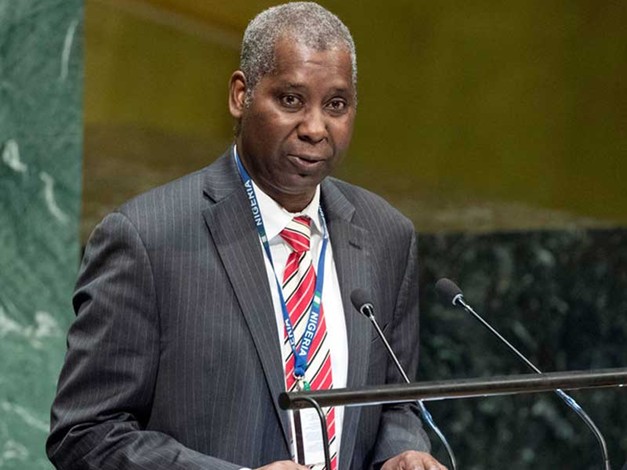‘Why Military Interventions Persist in West African Sub-regions’
Post By Diaspoint | November 22, 2024

Former Permanent Representative of Nigeria to the United Nations (UN), Prof. Tijani Muhammadu Bande, yesterday disclosed that the quest for change of leadership in the West African countries by military forces was due to poor leadership.
Prof. Bande made this disclosure in Ilorin, the Kwara State capital yesterday during the Commonwealth Scholarship and Fellows Alumni Association of Nigeria(COSFAN) event to mark the 80th birthday of former Chief of Staff(CoS) to former President Muhammadu Buhari, Prof. Ibrahim Agboola Gambari.
The event was also used to unveil the book written by the COSFAN titled: ‘Readings In Diplomacy, Democracy, Peace and Development’, in honour of the celebrant, Prof. Gambari.
Prof. Bande, who as the book reviewer at the event, stated that: “Most changes to constitutions in West Africa countries are about more powers to the president yet there is little to show that concentrated power meant improvement in the lives of citizens, and Togo and Guinea are cases in point.
“In other places, violence followed the weak transparency of governments. So, Coup D’etats happened in Mali, Burkina Faso and Niger Republic.
“Justifications of these acts are mainly from security to poverty, to loss of sovereignty to erstwhile colonial powers.
“Certainly, frustration with flawed elections and a sense that elections hardly remove bad leaders have given a veneer of support to some for this dangerous direction.
“For example in Mali, the failure to secure people for a decade played into the hands of the coupists, as the death toll reached 2,000 people. One and half million became refugees. Street protests against President Boubacar Keita was taken advantage of by the military.”
Prof. Bande also made strong case for ethics in governance and social relations, saying that the development would help the country in her challenges and also make progress.
He stated that: “Because of the multiple diversities characterising Nigeria, values and norms are not uniform. Furthermore, technology, migration and urbanisation and the erosion of traditional values among other things have impacted behaviour and norms.
“Dysfunctional and corruption behaviour must be removed in Nigeria otherwise the incessant search for material wealth at all costs will continue to fuel inefficiency, inequality, inferior standards and even violence.”
He noted further that: “Agencies for dealing with these ills such as ICPC, EFCC, NOA, NDLEA, have made their contributions but the problem has continued unabated.
“There appears to be no deterrent effect on the behaviour of both leaders and followers.
“There is much that agents of socialisation can do to continue the old tradition of separating right from wrong. Without this, development would be near impossible.”
Read More from original source
